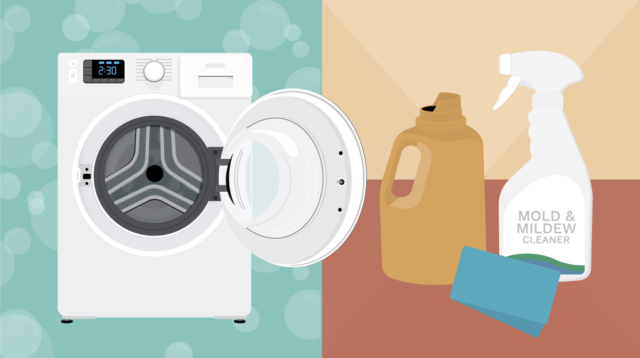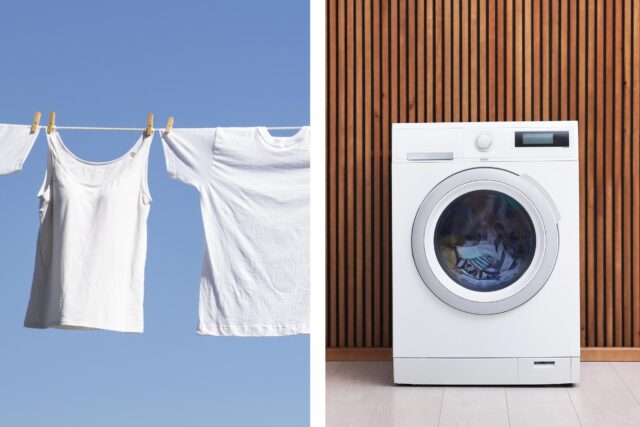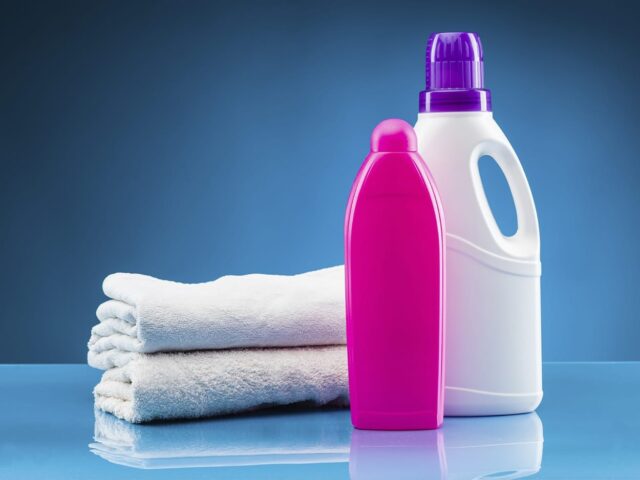
For some, laundry is washing and drying their dirty clothes. However, it’s not as simple as that for those who have skin allergies. People who have skin allergies are extra careful with all the things that directly contact their skin surface, especially their clothes.
Dirt and dust particles on the cloth fabric are the most common cause of skin allergies, and laundry detergent comes second. Your laundry detergent may make your clothes smell like flowers and spring, but it contains chemicals that contribute to laundry-related skin allergies.
Fragrance, dyes, and preservatives that are in laundry detergents will trigger skin dermatitis. Skin dermatitis is the red, itchy rash on the skin. Skin allergies may develop on the first or repeated exposure.
How Will I Know If the Detergent’s the Cause?

It is frustrating and annoying figuring out what causes your skin allergies. Most of us are quick to blame the food and drink we indulge in or the skin-care products we apply to our skin. These guesses are applicable if you have recently done something new from your routine– did you try a new cuisine or a different skincare product?
If these things are ruled out of the factors, it’s time to reflect and ask yourself more critical questions– have you recently switched detergents? Did you sleep in hotel rooms? Commercial grade detergents are known to cause skin dermatitis.
You can develop a skin allergy to an ingredient anytime, and it’s more likely if it’s a new detergent. Thus, do not rule out the one you have been using for quite some time either. Check your other household members if they are having the same skin problems as you.
Lastly, what’s best is to know what caused the skin allergy is by consulting a dermatologist. They will help you figure it out once and for all. You will undergo specific tests to know the cause of your skin irritation.
What to Do if You’re Allergic to Laundry Detergent?
It’s common for most to be allergic to the traditional detergents on the market. Fortunately, brands are developing and manufacturing detergents with natural ingredients. The allergens are replaced with skin-friendly ingredients so you can confidently and safely wash your clothes and linens without worrying about your skin.
Choose the right laundry detergent and washing powder. It’s quite an obvious thing to do since the chemicals are the culprit of your skin allergies. Dyes and fragrances in these products will lead to severe reactions or cause irritation to your sensitive skin. Thus, choose laundry detergents that do not contain dyes and fragrances. You can find them as hypoallergenic detergents. They are most suited for people with sensitive skin or allergies.
If you cannot find a hypoallergenic detergent at the nearest grocery store, you can create your detergent if you like. Look for borax and washing soda formula. Their mixture is friendly to those who have skin allergies. The solution is free from dye and scent. If you want more extra cleaning power to your homemade laundry detergent, add olive oil-based Castile soap.
Other than buying the appropriate laundry detergent, here are some ways that will help you prevent having skin allergies:
1. Clean Laundry Washer and Dryer

Microbes and bacteria do not dwell on your clothes. It also sits on your washer and dryer. Your laundry washer and dryer accommodate harmful bacteria and microbes that can trigger severe skin irritation and allergic reactions.
Regularly clean your washer and dryer to prevent mold and bacteria buildup. Ensure that you wash them thoroughly inside-out.
2. Use Detergent Properly.
If you have skin allergies to laundry detergent, you have to be extra careful with the detergent amount you use. Aside from the right product, you have only to use the right amount of detergent. Do not place an ample amount of detergent as it may irritate your skin further.
When you rinse your clothes, ensure that you remove the detergent residue as much as possible. Residues can agitate the skin, which results in breakouts or rashes. Thus, ensure to wash all the products from your clothes. Instead of doing a single rinse cycle, do it twice or thrice.
3. Which is Recommended: Mechanical Dryer or Air Drying?

If you have a skin allergy, air drying is unwise to do. It will harbor pollen, bacteria, or other allergens outside. These may attach to the fabric of your clothes and linen, which may irritate. Thus, mechanical dryers are more efficient and safe for clothes of people who have skin allergies.
4. Use the Right Water Temperature
When you wash your laundry, experts advise using warm water to eliminate allergens and bacteria that have settled into your clothes’ fabrics. Warm water is not only essential to remove allergens and bacteria, but it also helps maintain the color and quality of your clothes.
You need to wash your bed linens, blankets, and pillow on a regular basis to maintain hygienic conditions to remove irritants and bacteria that will trigger an allergic reaction.
5. Skip Fabric Softeners

Reduce the use of chemicals and do not use fabric softeners. You can use vinegar solution or dryer balls to soften your clothes. Dryer balls are made from plastic, wool, or rubber that reduces the static of your clothes. These fabric softener alternatives do not introduce any irritants. Other than vinegar softening your clothes, it helps brighten them making them fresh-looking and vibrant.
Are You Worried That You Depend on Laundry Services?
Doing laundry is already a daunting task. What more if you have to do it meticulously because of your skin problems? Will it affect your dependence on the laundry service? Do you have to do the laundry at home?
There’s no need to worry about your skin allergies if you depend on laundry services. Laundry service like Liox uses skin-friendly laundry essentials. Inform their staff when you drop off your laundry or have it picked up and delivered.
Let them know beforehand so they would know how they can treat and wash your clothes.








